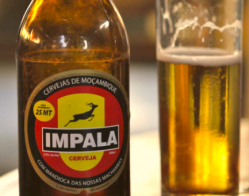SAB Miller researches cassava food byproducts to push ‘zero waste’ aim

Leading brewer SAB will partner with the Natural Resources Institute (NRI) and other groups to deliver a €3.7m ($4.8m) investment in better food security by cutting waste and optimizing its uses.
The Gains from Losses of Roots and Tuber Crops (Gratitude) project, directed from the University of Greenwich in the UK, will research solutions to cut waste from post-harvest losses of root and tuber crops such as cassava and yam.
The project will look to turn such waste into value-added products such as snack foods, mushrooms or animal feed, but SAB Miller is specifically involved in post-processing food uses for cassava.
Cassava and yam were important food security crops for approximately 700m people, the firm noted, but losses after harvesting and during processing were as high as 30% for cassava.
Not only was this detrimental to food security and the environment, but it also meant missed opportunities in terms of increasing the value generated from these crops, SAB Miller said.
Sustainability advantage
SAB’s role in the venture involves working with Hanoi University of Science and Technology (namely its School of Biotechnology and Food Technology) to “dramatically increase” the economic value of cassava processing byproducts.
Bianca Shevlin, sustainable development media relations manager at SAB Miller, told BeverageDaily.com that the product was at a very early stage.
Asked whether local smallholders (for instance in Mozambique SAB has circa. 1500 farmer suppliers) could sell the byproducts, or whether SAB itself could harness them for additional revenue, she said: “I think at the moment things are fairly hypothetical, so I wouldn’t be able to give you a useful answer.”
“But for us brewing is really interesting because so many of our byproducts already have a value, and we are aiming to be ‘zero waste to landfill one day.
“The more things we can do with byproducts, the more value we can extract from them, the better.”
Added-value products
Shevlin added: “We spent several years researching how to brew with cassava, and along the way realized that some cassava could potentially be put to use.”
“To clarify, it’s not going to happen in Mozambique or anywhere else in the immediate future. But we do brew with cassava now, so the long-term potential is definitely there.”
SAB Miller’s Dr Wolfgang Tosch said: “Our ultimate aim is for brewing to be a zero-waste industry and many of our byproducts already have valuable uses such as animal feed, yeast extract and fertilizer.
“As brewing innovation develops, so do the opportunities for creating even more added-value products and the spent cassava research has the potential to benefit smallholder communities and, in the long-term, improve their food security.”




